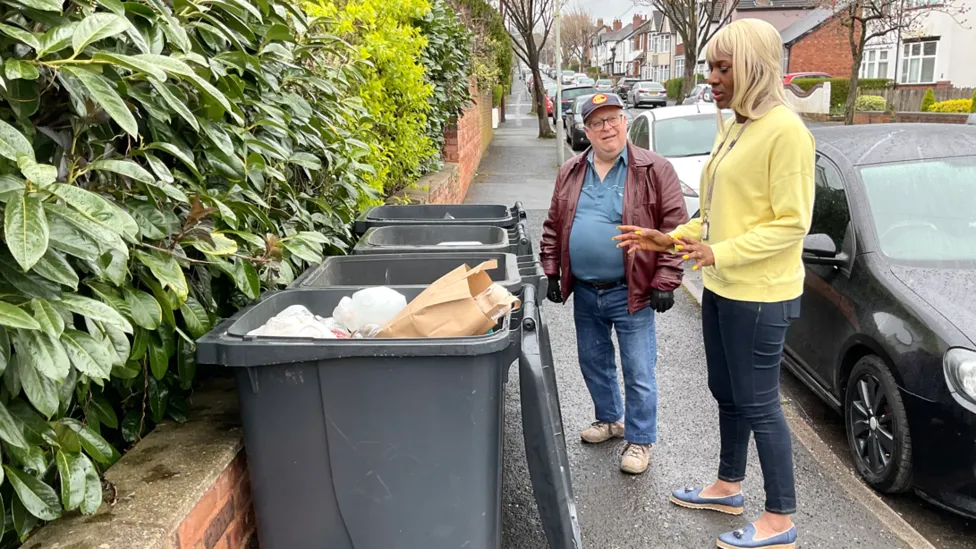Earlier this year, the council announced that recycling would no longer be collected if the bins contained incorrect items.
Ms Hibbert, an independent for Penn ward, said “more than 23,000 bins” had been left uncollected in three collection rounds.
Wolverhampton council has said that its campaign, which reminds residents to “check before you chuck” has seen “contamination” rates “fall from 24% in December to 16% in February”.
Tags
The authority previously emphasised the impact of placing items in the wrong bins, stating that the materials could not be properly recycled, having to ultimately be disposed of separately, costing more money and losing environmental benefits.
Tags are being placed on receptacles that contain the invalid items, with the council asking residents to remove anything that should not be there, allowing waste to be picked up at a later date.
Ms Hibbert claimed that the council were also requesting that residents “wash out some containers beforehand” and that passers-by were potentially throwing their rubbish in bins without the household’s knowledge.
In an online petition, she said she had been “inundated with complaints about the new system” and wanted a pause on the change because it was “causing a health hazard and an eyesore”.
‘Huge impact’
Ms Hibbert added: “Due to the huge impact this is having in our city, I am calling on all well-meaning residents to please sign this petition which demands that the cabinet member immediately pauses this rule change and returns to the drawing board, this time with a wider consultation with residents.”
A spokesperson for the council claimed that its list of acceptable recyclable material had remained unchanged since 2020. “Contamination rates have fallen from 24% in December to 16.6% in February and no loads of waste have been rejected by our recycling facility, saving money on additional disposal costs,” they said.
“Early in the campaign, up to 14% of recycling bins were tagged as contaminated and not collected, but last week’s average showed this had dropped to just under 5%.”
Bin contamination cost taxpayers £185,000 a year which was money that could be “better spent” on other services, the spokesperson added.









Subscribe for free